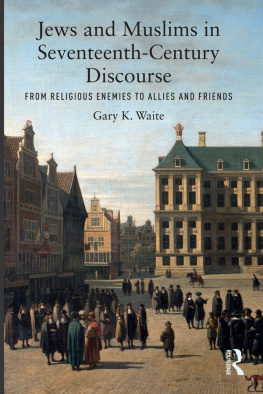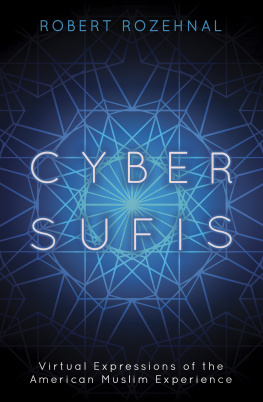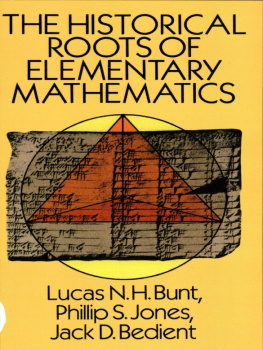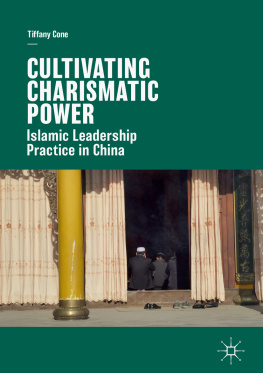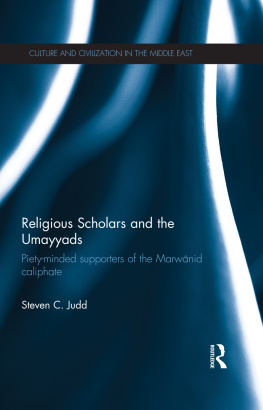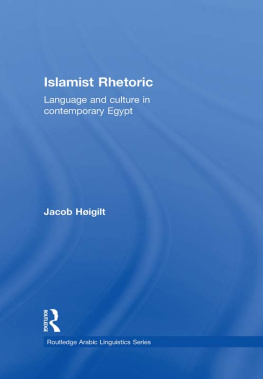Hashtag Islam
ISLAMIC CIVILIZATION AND MUSLIM NETWORKS
Carl W. Ernst and Bruce B. Lawrence, editors
Highlighting themes with historical as well as contemporary significance, Islamic Civilization and Muslim Networks features works that explore Islamic societies and Muslim peoples from a fresh perspective, drawing on new interpretive frameworks or theoretical strategies in a variety of disciplines. Special emphasis is given to systems of exchange that have promoted the creation and development of Islamic identitiescultural, religious, or geopolitical. The series spans all periods and regions of Islamic civilization.
A complete list of titles published in this series appears at the end of the book.
This book was published with the assistance of the Anniversary Fund of the University of North Carolina Press.
2018 The University of North Carolina Press
All rights reserved
Manufactured in the United States of America
Designed by Jamison Cockerham
Set in Arno and Klavika
by codeMantra, Inc.
The University of North Carolina Press has been a member of the Green Press Initiative since 2003.
LIBRARY OF CONGRESS CATALOGING-IN-PUBLICATION DATA
Names: Bunt, Gary R., author.
Title: Hashtag Islam : how cyber-Islamic environments are transforming religious authority / Gary R. Bunt.
Description: Chapel Hill : The University of North Carolina Press, [2018] | Series: Islamic civilization and Muslim networks | Includes bibliographical references and index.
Identifiers: LCCN 2018005190 | ISBN 9781469643151 (cloth : alk. paper) | ISBN 9781469643168 (pbk : alk. paper) | ISBN 9781469643175 (ebook)
Subjects: LCSH: Social mediaReligious aspectsIslam. | Mass mediaReligious aspectsIslam. | Islam21st century. | TechnologySocial aspects. | JihadHistory21st century.
Classification: LCC BP185.7 .B86 2018 | DDC 297.0285dc23
LC record available at https://lccn.loc.gov/2018005190
For Yvonne and Kane and my mother, Elizabeth
In memory of Derek Bunt
Contents
Illustrations
Android Store, Koran
Assabile home page
Twitter page of @HolyKaaba
Screenshot from Muzmatch
Amir Tataloos Energy Hasteei on YouTube
Twitter page of Mohamad Alarefe
Index page on AboutIslam
Muhammad Saalih al-Munajjid on YouTube
Astan Quds Razavi home page
Home page of eShaykh.com
Twitter page of Islamic State of Cat
Dabiq cover, issue 10
Table of contents, Rumiyah, issue 7
Acknowledgments
This development of this book would have been impossible without the help of many people, some in cyberspace and others closer to home.
The University of Wales Trinity Saint David supported my research. Thanks are due to all the staff and students who encouraged me and discussed their interests in this field. I am indebted to the organizers of the numerous UK and international workshops and conferences I participated in for providing the opportunity to test-drive aspects of this work. Special thanks are due to Carl W. Ernst and Bruce B. Lawrence, series editors, for allowing me the privilege to contribute again to the Islamic Civilization and Muslim Networks series. Bruce and I maintain a long-standing trans-Atlantic dialogue on cyber-Islamic issues, and I have welcomed his perceptive insights and encouragement at every stage in this books preparation. The readers and editors of this book provided thoughtful feedback that contributed to the final version. I particularly appreciate the advice of Elaine Maisner and the team at the University of North Carolina Press.
Throughout the time-consuming research and development of this project, my wife, Yvonne, provided patient support and an invaluable sense of perspective. My son Kane gave his own insights into technology use, as well as virtuoso musical accompaniment. My mother, Elizabeth, and late father, Derek, consistently encouraged my work in this field from its early days. Other members of my family offered their own enthusiastic support.
Despite the input of all of the above, the contents and shortcomings of the book remain entirely my responsibility.
Note on Transliteration
Within the main text of this book, I decided not to burden the reader with a complex system of transliteration of Islamic and other terminology from Arabic and other languages into English, which I thought was unnecessary and damaging to the flow of the text, especially for nonspecialist readers outside the fields relating to Islamic studies. However, key transliterated terms with diacritics are provided in the glossary in order to assist readers seeking further information and definitions in specialist sources. The general principles contained in the Encyclopaedia of Islam: New Edition (Leiden: E. J. Brill, 1960) and associated systems have been adhered to, with the popular model featured in Ian Richard Nettons A Popular Dictionary of Islam (London: Curzon Press, 1991) also applied. Quotations from internet and textual sources retain their original transliterations; proper names maintain locally applied personal spellings and transliterations; and common anglicized spellings of Islamic terms are applied where possible in the textthat is, mosque for masdjid, hajj rather than adjdj. Variants may be found in quotes and in the glossary. Where an Islamic term is contained in a quotation, I have given a general definition in parentheses.
Hashtag Islam
Introduction: Entering Muslim Digital Worlds
The Sheikh Zayed Grand Mosque is an imposing landmark on the skyline of Abu Dhabian oasis of air-conditioning and minarets within the concrete heat and frenetic bustle of the United Arab Emirates. When I visited there in 2011, I was shown how it acts as a networking hub, integrating digital media in its precincts and streaming sermons and other religious materials to other mosques in the region. Many mosques and religious institutions can stream multimedia across platforms and services, a service now embedded in the expectations of their core users within Muslim digital worlds. Digital content has become a key part of expressions of contemporary Islam in many contexts, in terms of the ways in which faith, command, and control are manifest across complex systems of Muslim beliefs.
We live in a phase of sustained information technological development, where significant innovations in communications have combined with diverse Islamic agendas to create a significant shift in the ways in which command and control of Muslim contexts are driven. Muslims in many zones are attuned to the various ways in which the internet can be applied to fulfill religious and other objectives, demonstrating innovation and technological aptitude that can contradict some prevalent stereotypes of Islam and Muslims being behind the times or stuck in a medieval phase of development. While there may be much of merit associated with Islam and Muslims in medieval periods, it is clear that in many cases Islamic cyberspace is up to speed (or ahead) and delivering technologically adept objectives to a public for whom online systems are a natural adjunct to everyday life. Through the application of technology, some sectors of Muslim society have engineered elements of positive social change and activism in diverse political and cultural contexts. Other elements might be deemed negative in terms of technological application, such as the emergence of online jihad associated with the Islamic State.
The diminished digital divide and increased web literacy across generations feed into forms of Islamic cyberspace that have a growing influence across diverse Muslim contextsespecially in relation to religious authority Such factors have to be kept in mind within any discussion about contemporary Islamic discourse in cyberspace, as it cannot be assumed that technological improvements are consistent or universal.
Next page

